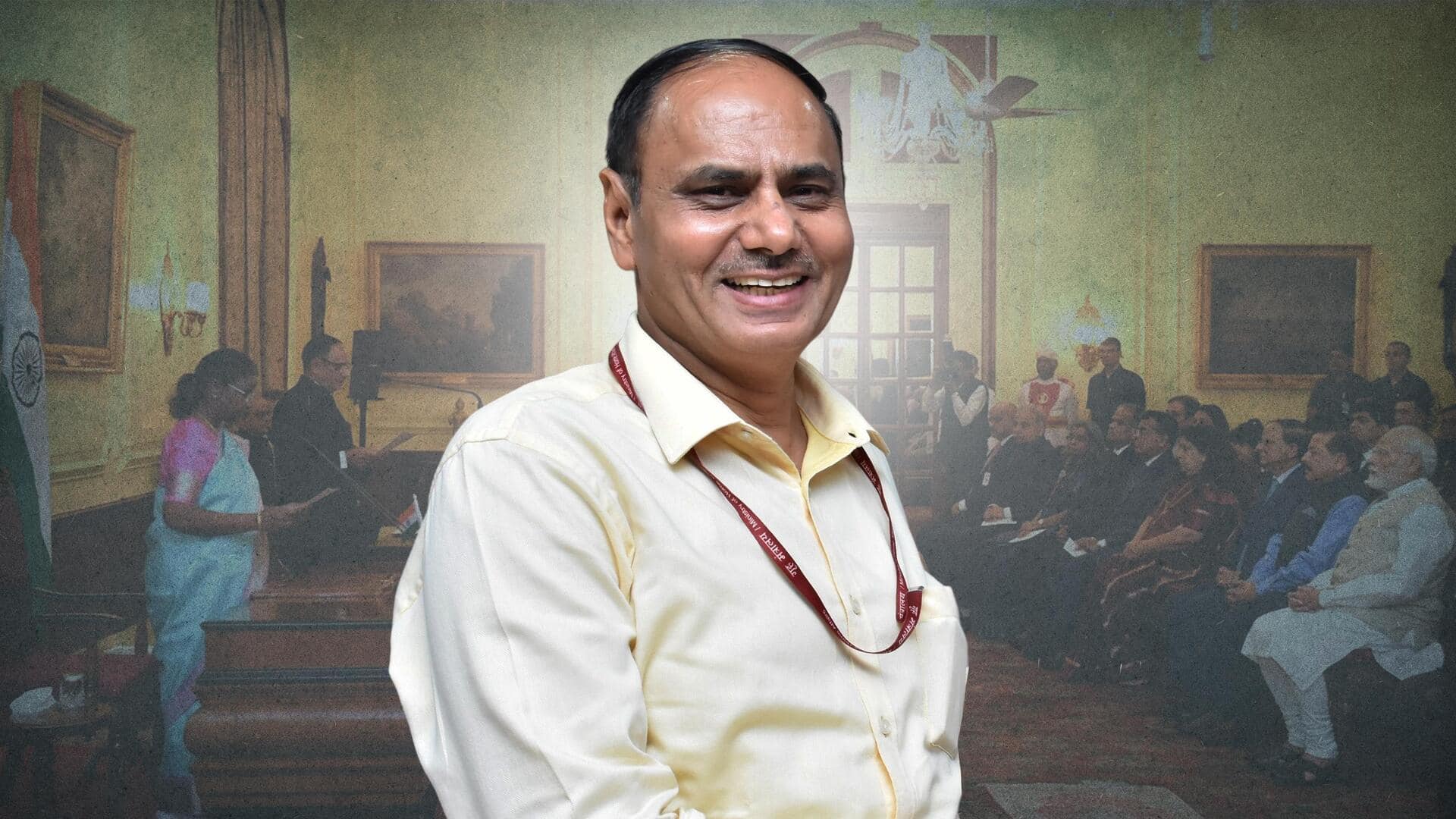
Heeralal Samariya sworn in as chief information commissioner of India
What's the story
Senior bureaucrat and Information Commissioner Heeralal Samariya was on Monday sworn in as the chief of the Central Information Commission (CIC) by President Droupadi Murmu.
He is the first Dalit person to hold the post of the chief information commissioner, which was lying vacant after YK Sinha's term ended on October 3.
Previously, Samariya has held several distinguished positions in his public service career, including as a secretary in the Ministry of Labour and Employment.
Twitter Post
Watch: Visuals of Samariya's oath-taking ceremony
#WATCH | President Droupadi Murmu administers the Oath of Office to Heeralal Samariya, the Chief Information Commissioner at Rashtrapati Bhavan. pic.twitter.com/tPaDthy1qn
— ANI (@ANI) November 6, 2023
About
Know more about Samariya
President Murmu administered the oath of office to Samariya at a ceremony in Rashtrapati Bhavan, New Delhi.
He was appointed as an information commissioner in the CIC on November 7, 2020.
A retired Indian Administrative Service (IAS) officer with administration and governance expertise, Samariya previously served as a secretary and an additional secretary in the Labour and Employment Ministry.
He also worked as a joint secretary in the Chemicals and Fertilizers Ministry.
Samariya holds a bachelor's degree in civil engineering.
Details
Samariya's appointment expected to resolve pending cases, vacancies
Samariya's appointment is seen as a significant development as it is expected to address issues of vacancies in the CIC and state information commissions (SICs) and their long-pending cases.
The CIC can have up to 10 information commissioners, but it currently has only two.
Earlier, the Supreme Court also took note of CIC and SIC vacancies and directed the Department of Personnel and Training (DoPT) to collect information on sanctioned strengths, vacancies, and pending cases from all states.
Supreme Court
Supreme Court warned of RTI Act turning 'dead letter'
On October 30, the SC urged the Centre and state governments to fill all vacancies in the CIC and SICs.
A bench consisting of Chief Justice DY Chandrachud and Justices JB Pardiwala and Manoj Misra noted that if these vacancies remained unfilled, the Right to Information (RTI) Act of 2005 could become a "dead letter."
The directive came when the apex court was hearing a plea filed by RTI activist Anjali Bhardwaj.